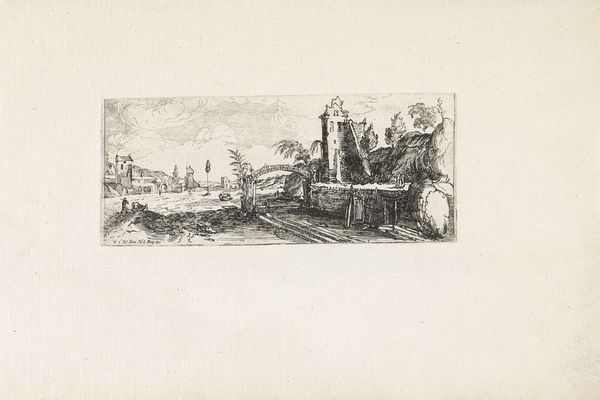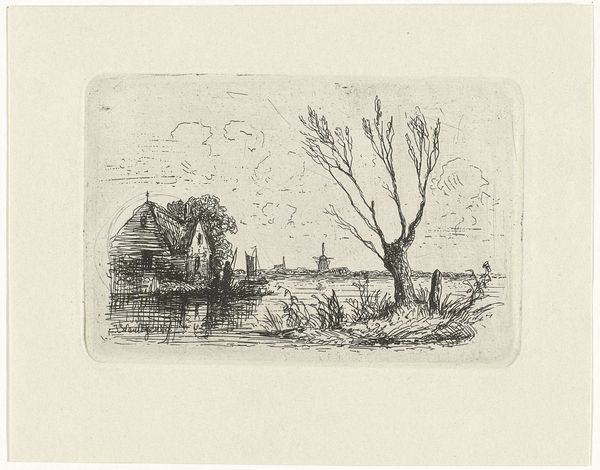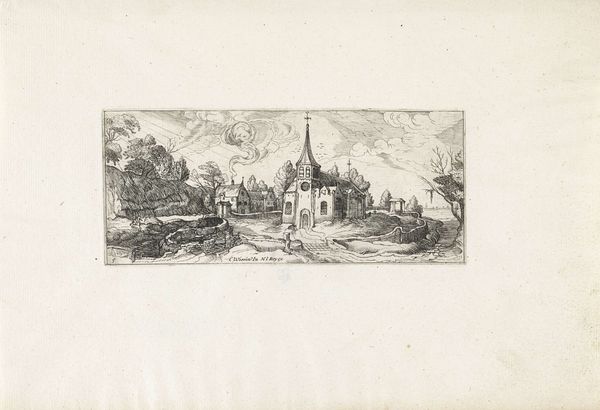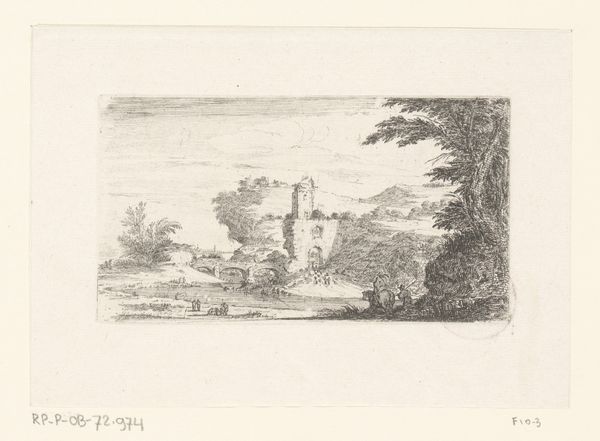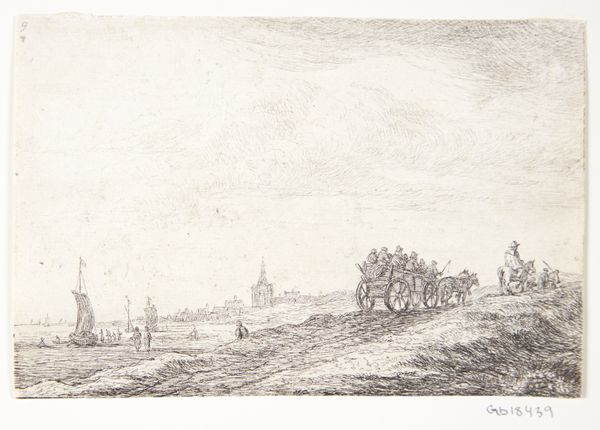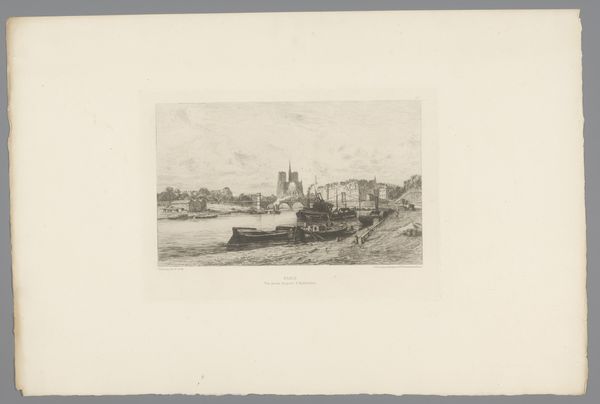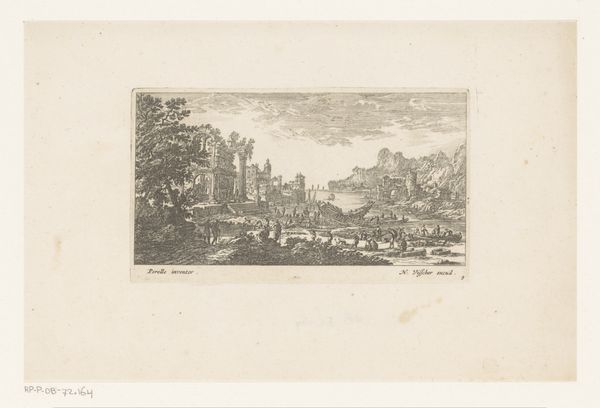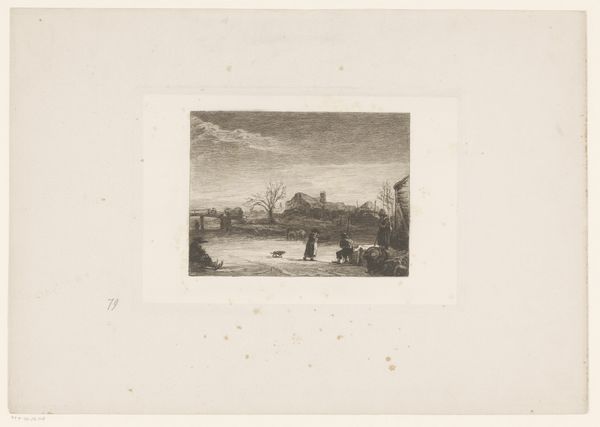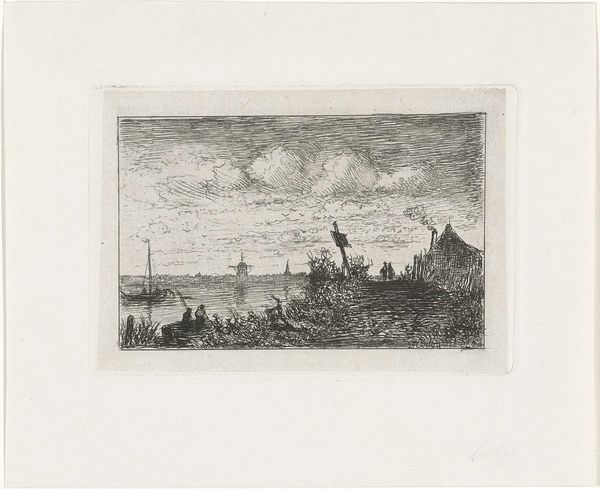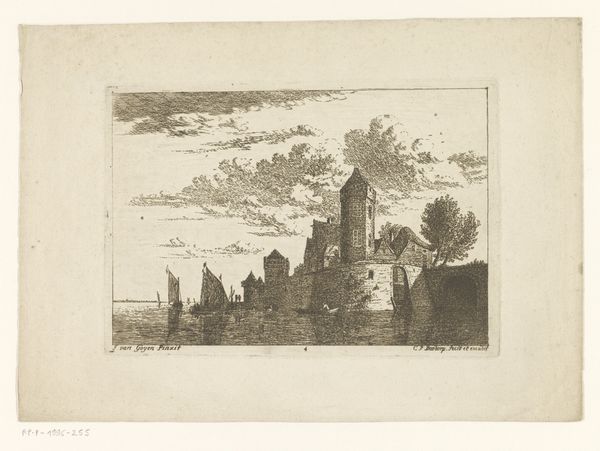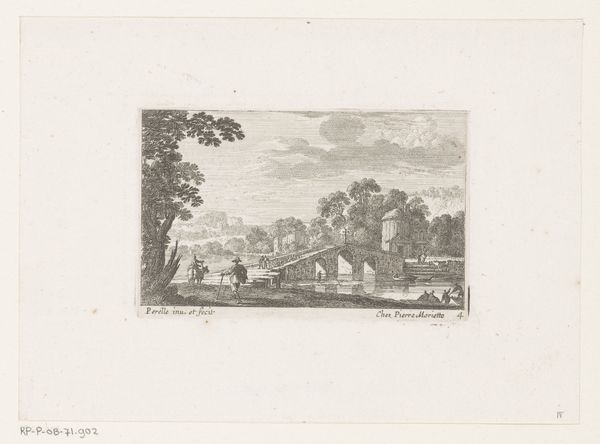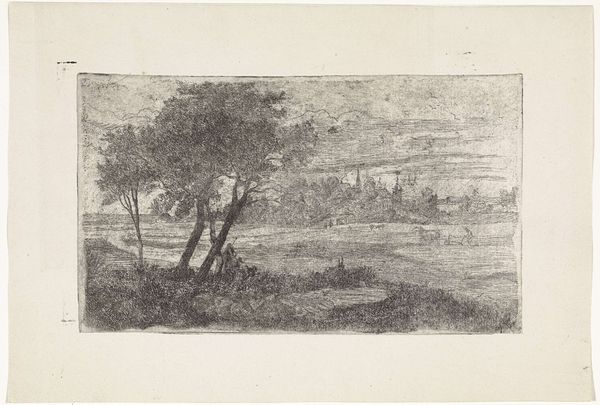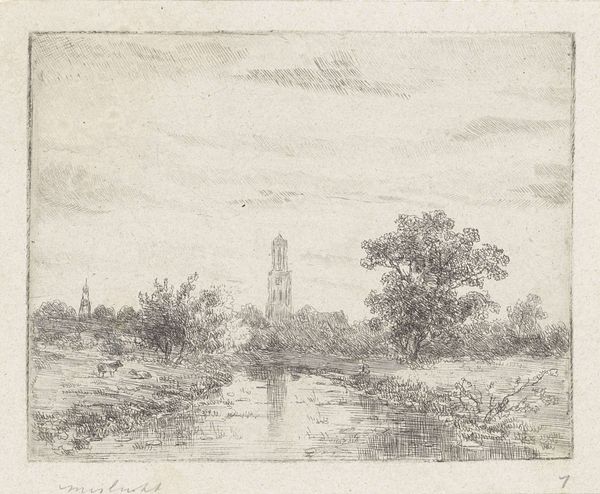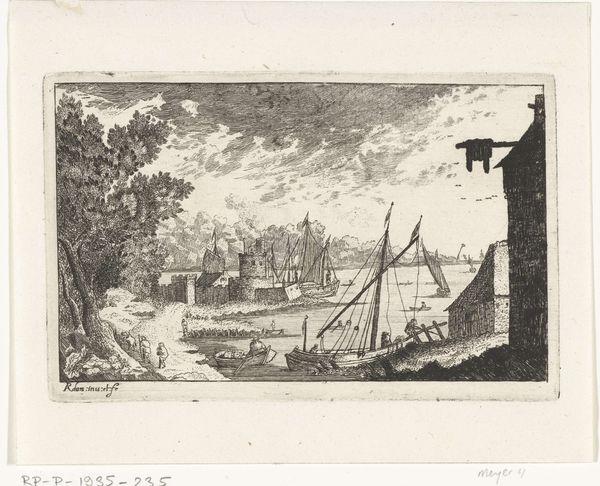
print, etching
# print
#
etching
#
landscape
#
realism
Dimensions: height 100 mm, width 164 mm
Copyright: Rijks Museum: Open Domain
Willem Oppenoorth made this landscape with a boat on a canal and a mill using the printmaking technique of etching. Oppenoorth would have coated a metal plate with a waxy, acid-resistant substance, then scratched his image into that coating, exposing the metal underneath. The plate was then immersed in acid, which bit into the exposed lines, creating grooves. Ink was applied to the plate, filling these grooves, and the surface was wiped clean. Finally, the plate was pressed onto paper, transferring the ink and creating the print you see here. Notice how the incised lines are close together or far apart. The lines add shadow and depth to the scene, defining the clouds, the water, and the architecture of the mill. The etched line, with its capacity to capture detail, allowed Oppenoorth to reproduce the landscape, turning it into a commodity. Looking at this print reminds us that art is not just about the image, but also about the labor and processes involved in its making.
Comments
No comments
Be the first to comment and join the conversation on the ultimate creative platform.
